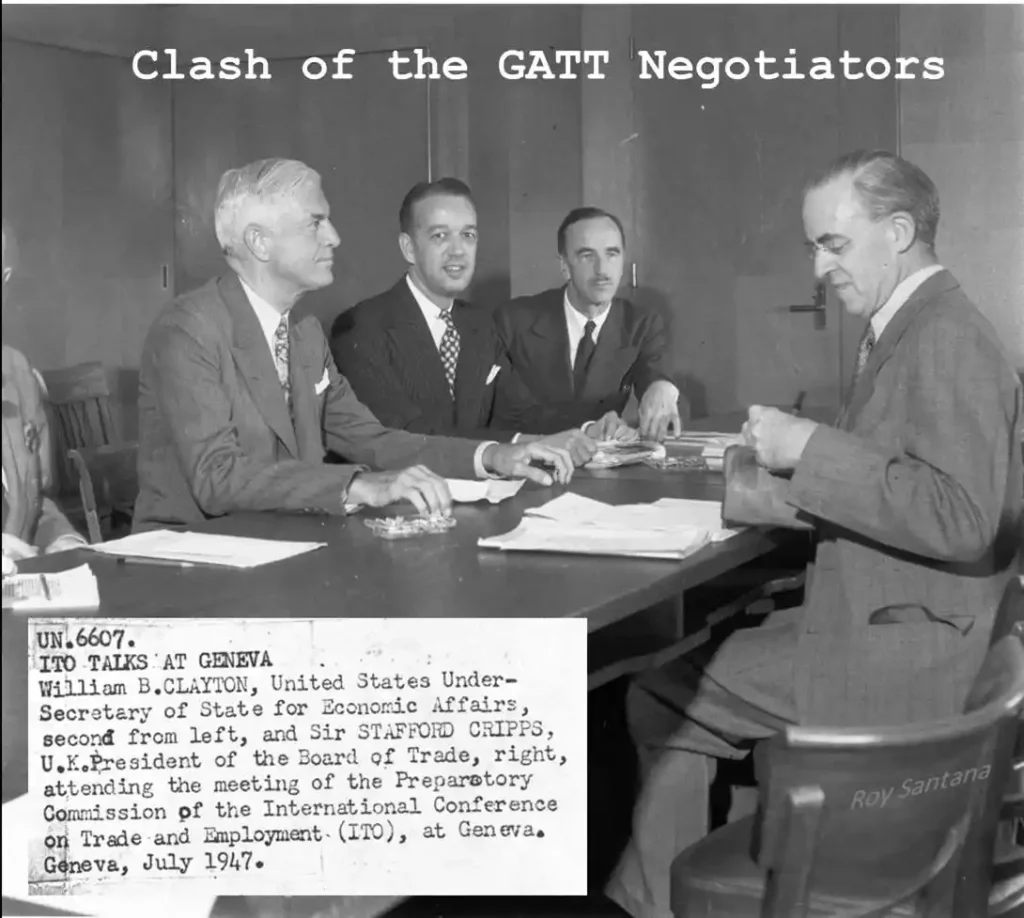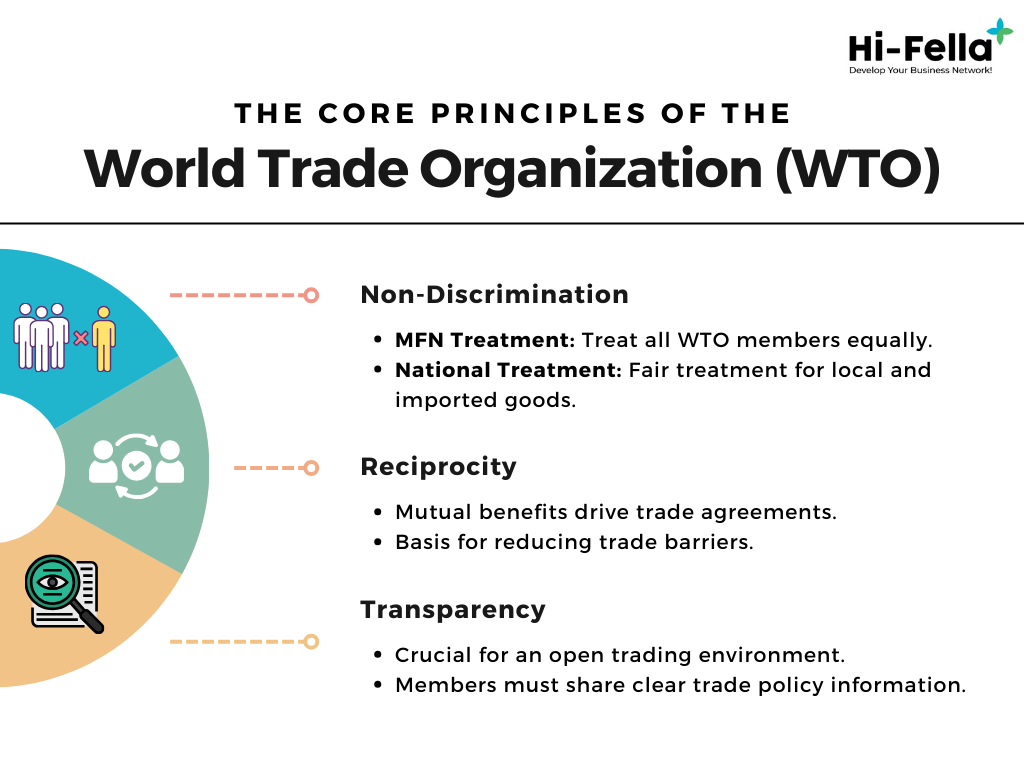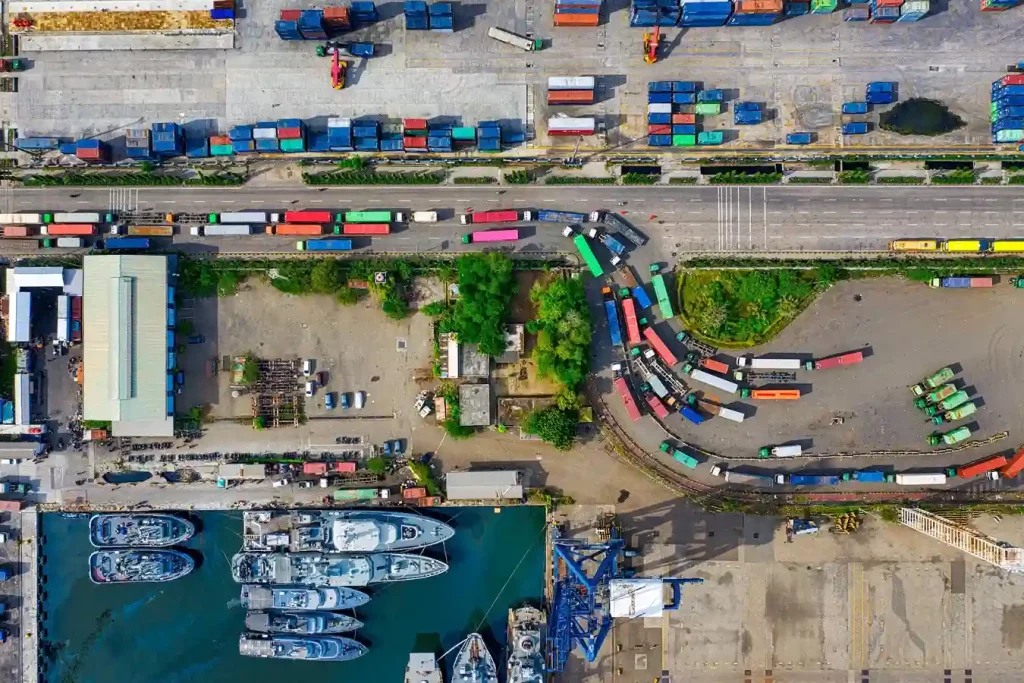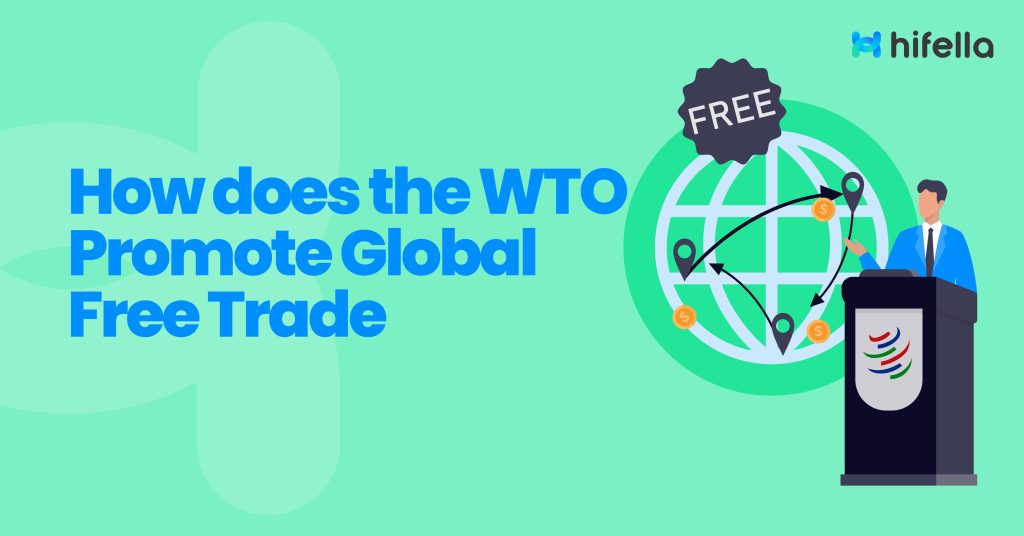The World Trade Organization (WTO) is an important institution in shaping the global trade landscape. Established to replace the General Agreement on Tariffs and Trade (GATT), the WTO has fostered global economic stability and promoted free trade among its member countries.
So, how does the WTO promote global free trade? For more answers, you can find them through the comprehensive discussion in this article and gain new insights into the impact of the WTO on the world economy.
History of the WTO

In 1948, the General Agreement on Tariffs and Trade (GATT) provided the rules for this system. (The second WTO ministerial meeting, held in Geneva in May 1998, included a celebration of the system’s 50th anniversary).
It did not take long for the General Agreement to give birth to an unofficial de facto international organization, also known informally as the GATT. Over the years GATT evolved through several rounds of negotiations.
According to WTO’s official website, the last and largest GATT round was the Uruguay Round, which lasted from 1986 to 1994 and resulted in the formation of the WTO. While GATT primarily focused on trade in goods, the WTO and its agreements now seamlessly cover trade in services, as well as traded inventions, creations, and designs (intellectual property), illustrating how the WTO promotes global free trade.
Therefore, the WTO was established and began operations on January 1, 1995, to replace the GATT, which was formed in 1947 as a result of the Dumbarton Conference. The main objective of the WTO is to help producers of goods and services, exporters, and importers to conduct their business more efficiently.
WTO Core Principles

The core principles of the World Trade Organization (WTO) are fundamental to the multilateral trading system and contribute to the promotion of free trade. These principles include the following:
1. Non-Discrimination
The principle of non-discrimination is a key pillar in the World Trade Organization (WTO), consisting of two main aspects:
a. Most-Favored-Nation (MFN) Treatment
Under the WTO framework agreement, countries are required not to discriminate against their trading partners. They must treat all WTO members on equal and mutually beneficial terms and ensure that the benefits given to one member also apply to all other members.
b. National Treatment
This principle ensures that a country should not differentiate the treatment of its products, services, or citizens from that of foreigners. It asserts that both imported and locally produced goods should be treated fairly once they enter the market.
2. Reciprocity
Reciprocity is another fundamental principle of the WTO, emphasizing the importance of equal benefits in trade agreements between member countries. This principle encompasses the idea of “give and take,” where countries are willing to make concessions in trade negotiations in the hope of getting comparable benefits.
This principle forms the basis for the reduction of trade barriers through negotiations, allowing for an increasingly free trading environment.
3. Transparency
Clarity is crucial to fostering an open and predictable trading environment. The WTO requires its members to maintain transparency in trade policies and practices, providing accurate and accessible information on their trade rules and measures.
Key Agreements Under The WTO
The World Trade Organization (WTO) has some important agreements that really affect global trade. Two of these agreements are the General Agreement on Trade in Services (GATS) and the Agreement on Trade-Related Aspects of Intellectual Property Rights (TRIPS).
a. General Agreement on Trade in Services (GATS)
The GATS is an agreement between many countries that wants to make it easier to trade services. It includes lots of services like banking, telecommunications, and transportation.
The goal of GATS is to gradually make it easier for countries to trade services with each other. Countries agree to let foreign competition into their service markets. GATS also has rules to protect intellectual property rights in services.
b. The Agreement on Trade-Related Aspects of Intellectual Property Rights (TRIPS)
The TRIPS is another important agreement within the World Trade Organization (WTO). It sets out the ground rules for protecting and enforcing intellectual property rights (IPR) among countries that are part of the WTO. The agreement covers different types of IPR such as patents, trademarks, and copyrights.
TRIPS aims to encourage innovation and creativity by providing a framework for protecting and enforcing IPRs. At the same time, it ensures that these rights are used in a way that does not restrict competition or harm public health.
In summary, the General Agreement on Trade in Services (GATS) and the TRIPS agreement are important parts of the WTO, which plays a vital role in shaping global trade.
GATS focuses on making it easier for countries to trade services, while TRIPS sets minimum standards for protecting and enforcing intellectual property rights.
WTO’s Impact on Global Trade: How Does The WTO Promote Global Free Trade?

The question of “how does the WTO promote global free trade” is essential to understanding the transformative impacts that will be explained more comprehensively below:
1. Reduction of Tariffs and Trade Barriers
According to WTO statistics, by the mid-1990s, industrialized countries’ tariff rates on industrial goods had fallen steadily to less than 3%.
The WTO tariff database contains bound and applied tariffs, which can be used to analyze the reduction of tariffs and trade barriers over time.
2. Facilitating Market Access
The Information Technology Agreement has resulted in additional commitments from members to reduce tariffs on information technology products.
Based on the Global Trade Outlook and Statistics, the value of world merchandise trade increased by 12% to US$25.3 trillion by 2022, partly due to high global commodity prices. The total value of world trade in commercial services increased by 15% in 2022 to US$6.8 trillion.
3. Promoting Fair Competition
The agreement on government procurement aims to ensure that government procurement practices are transparent, non-discriminatory, and open to competition, thereby promoting fair competition among businesses.
The WTO system has contributed to easing access to markets for goods and services, benefiting both developed and developing countries.
Hi-Fella: Your Gateway to Global Business Connections
Discover a world of business opportunities on Hi-Fella, the leading B2B marketplace connecting manufacturers, suppliers, and buyers.
Join Hi-Fella to simplify your commerce experience and explore a vast network of global partners!








